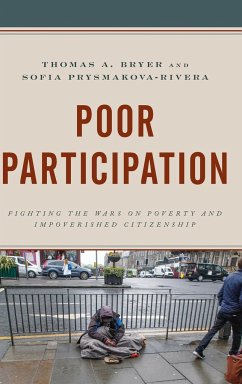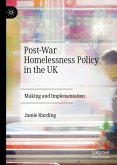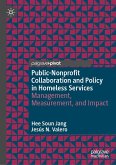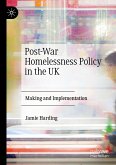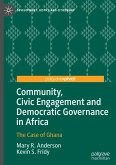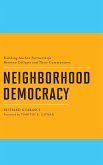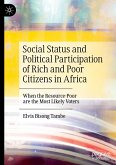This book argues that active citizenship and poverty are inextricably linked. A common sentiment in discussions of poverty and social policy is that decisions made about those living in poverty or near-poverty are illegitimate, inadvisable, and non-responsive to the needs and interests of the poor if the poor themselves are not involved in the decision-making process. Inside this intuitively appealing idea, however, are a range of potential contradictions and conflicts. These conflicts are at the nexus between active citizenship and technical expertise, between promotion of stability in governance and empowerment of people, between empowerment that is genuine and sustainable and empowerment that is artificial, and between a "war on poverty" that is built on the ideas of collaborative governance and one that is built on an assumption of rule of the elite. The poor have long been consigned to a group of "included-out" citizens. They are legally living in a place, but they are not afforded the same courtesies, entrusted with the same responsibilities, or respected in parallel processes as those citizens of greater means and those who behave in manners that are more consistent with "middle class" values. Poor citizens engaged in the "war on poverty" of the 1960s started to emerge and force their agenda through adversarial action and social protest. This book explores the clear linkages between engaged citizenship and poverty in the United States, revealing a war on poverty and impoverished citizenship that continues to develop in the twenty-first century.
Hinweis: Dieser Artikel kann nur an eine deutsche Lieferadresse ausgeliefert werden.
Hinweis: Dieser Artikel kann nur an eine deutsche Lieferadresse ausgeliefert werden.

